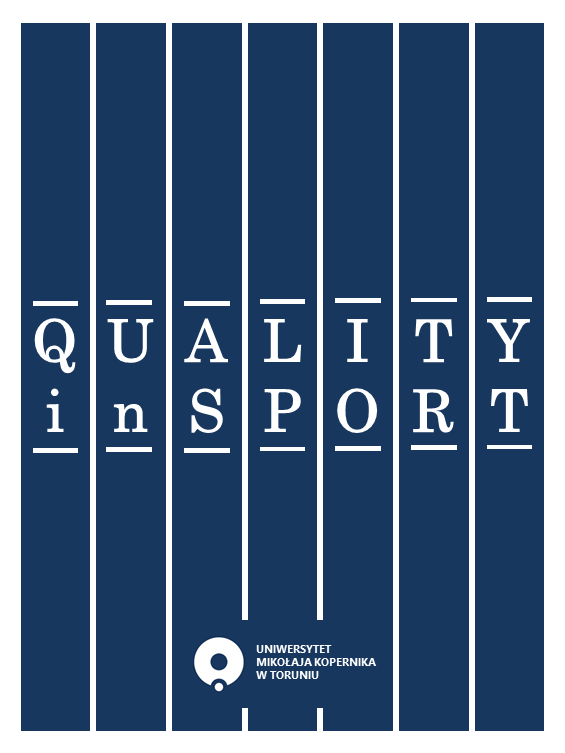The Efficacy of Non-Pharmacological Interventions in Reducing Elevated Serum LDL Cholesterol Levels: A Review Paper
DOI:
https://doi.org/10.12775/QS.2025.41.60226Keywords
elevated LDL management, lifestyle medicine, non-pharmacological interventions, LDL, cholesterol, diet, exercise, atherosclerosisAbstract
The review article explores the latest non-pharmacological approaches towards lowering serum levels of a main atherogenic lipoprotein, i.e. low-density lipoprotein (LDL). Elevated low-density lipoprotein cholesterol (LDL-C) levels are associated with a higher risk of cardiovascular disease (CVD)(1). According to World Health Organization (WHO) cardiovascular diseases (CVDs) are the leading cause of mortality worldwide(2). Although drug therapy of elevated LDL-C with statins remains effective, lifestyle modifications should be implemented as a first step in the treatment and also together with prescribed medication for the improved therapeutic outcome. Additionally, the side effects and cost of statins cause more than 30% of patients to discontinue their prescriptions(3), making lifestyle modifications both necessary and increasingly sought after. The article discusses lifestyle changes, particularly dietary adjustments and increased physical activity, and their potential beneficial effects on reducing elevated LDL-C levels. The conclusion emphasizes the critical role of non-pharmacological interventions in managing elevated LDL-C in all patients.
Materials and Methods
This review article presents a comprehensive and systematic analysis of the current literature on non-pharmacological approaches to managing elevated LDL-C levels. The primary aim was to synthesize and critically assess existing evidence, identify gaps in the research, and propose directions for future investigation. A thorough literature search was conducted across multiple electronic databases, including PubMed, Google Scholar, and Scopus. The search strategy focused on clinical interventions, randomized controlled trials, meta-analyses, and review articles published within the past 20 years.
References
Peng K, Li X, Wang Z, Li M, Yang Y. Association of low-density lipoprotein cholesterol levels with the risk of mortality and cardiovascular events: A meta-analysis of cohort studies with 1,232,694 participants. Medicine (Baltimore). 2022;101(48):e32003. doi:10.1097/MD.0000000000032003
World Health Organisation (WHO). Cardiovascular diseases (CVDs) [Internet]. 2021 Accessed April 5th 2025. Available from:
https://www.who.int/news-room/fact-sheets/detail/colorectal-cancer
Rosenthal RL. Effectiveness of altering serum cholesterol levels without drugs. Proc (Bayl Univ Med Cent). 2000;13(4):351-355. doi:10.1080/08998280.2000.11927704
Eurostat. Causes of death statistics. [Internet]. 2021. Accessed April 5th 2025. Available from:
https://ec.europa.eu/eurostat/statistics-explained/index.php?title=Causes_of_death_statistics
Statistics Poland. Statistics of Causes of Death. [Internet]. 2021. Polish. Accessed April 5th 2025. Available from:
https://stat.gov.pl/obszary-tematyczne/ludnosc/statystyka-przyczyn-zgonow/
Red. Śliż Daniel, Mamcarz Artur, Lifestyle medcine (Medycyna stylu życia), Warszawa: PZWL Wydawnictwo Lekarskie, 2018. Polish.
Stefanick ML, Mackey S, Sheehan M, Ellsworth N, Haskell WL, Wood PD. Effects of diet and exercise in men and postmenopausal women with low levels of HDL cholesterol and high levels of LDL cholesterol. N Engl J Med. 1998;339(1):12-20. doi:10.1056/NEJM199807023390103
Wnęk, D. Consequences of Obesity. Practical Medicine. [Internet]. 2025. Polish. Accessed April 5th 2025. Available from:
https://www.mp.pl/pacjent/nadwaga-i-otylosc/wprowadzenie/115230,konsekwencje-otylosci
Dhaka V, Gulia N, Ahlawat KS, Khatkar BS. Trans fats-sources, health risks and alternative approach - A review. J Food Sci Technol. 2011;48(5):534-541. doi:10.1007/s13197-010-0225-8
Houston, M. C., Fazio, S., Chilton, F. H., Wise, D. E., Jones, K. B., Barringer, T. A., & Bramlet, D. A. (2009). Nonpharmacologic Treatment of Dyslipidemia. Progress in Cardiovascular Diseases, 52(2), 61-94. https://doi.org/10.1016/j.pcad.2009.02.002
Fernandez ML, Murillo AG. Is There a Correlation between Dietary and Blood Cholesterol? Evidence from Epidemiological Data and Clinical Interventions. Nutrients. 2022;14(10):2168. Published 2022 May 23. doi:10.3390/nu14102168
Albarrati AM, Alghamdi MSM, Nazer RI, Alkorashy MM, Alshowier N, Gale N. Effectiveness of Low to Moderate Physical Exercise Training on the Level of Low-Density Lipoproteins: A Systematic Review. Biomed Res Int. 2018;2018:5982980. Published 2018 Nov 1. doi:10.1155/2018/5982980
Brown JD, Buscemi J, Milsom V, Malcolm R, O'Neil PM. Effects on cardiovascular risk factors of weight losses limited to 5-10. Transl Behav Med. 2016;6(3):339-346. doi:10.1007/s13142-015-0353-9
Dattilo AM, Kris-Etherton PM. Effects of weight reduction on blood lipids and lipoproteins: a meta-analysis. Am J Clin Nutr. 1992;56(2):320-328. doi:10.1093/ajcn/56.2.320
Yoon JY, Park WJ, Kim HK, Kang HC, Park CK, Choi W. Association between Weight Change and Incidence of Dyslipidemia in Young Adults: A Retrospective Cohort Study of Korean Male Soldiers. J Obes Metab Syndr. 2024;33(1):36-44. doi:10.7570/jomes23056
Cho AR, Lee JH, Kwon YJ. Fat-to-Muscle Ratios and the Non-Achievement of LDL Cholesterol Targets: Analysis of the Korean Genome and Epidemiology Study. J Cardiovasc Dev Dis. 2021;8(8):96. Published 2021 Aug 12. doi:10.3390/jcdd8080096
District Sanitary and Epidemiological Station in Łobez. Overweight and Obesity. [Internet]. 2024. Accessed April 5th 2025. Available from:
https://www.gov.pl/web/psse-lobez/nadwaga-i-otylosc
Buscemi S, Corleo D, Buscemi C, et al. Influence of Habitual Dairy Food Intake on LDL Cholesterol in a Population-Based Cohort. Nutrients. 2021;13(2):593. Published 2021 Feb 11. doi:10.3390/nu13020593
Schmidt KA, Cromer G, Burhans MS, et al. Impact of low-fat and full-fat dairy foods on fasting lipid profile and blood pressure: exploratory endpoints of a randomized controlled trial. Am J Clin Nutr. 2021;114(3):882-892. doi:10.1093/ajcn/nqab131
Enkhmaa B, Surampudi P, Anuurad E, et al. Lifestyle Changes: Effect of Diet, Exercise, Functional Food, and Obesity Treatment on Lipids and Lipoproteins. [Updated 2018 Sep 11]. In: Feingold KR, Ahmed SF, Anawalt B, et al., editors. Endotext [Internet]. South Dartmouth (MA): MDText.com, Inc.; 2000-. Available from: https://www.ncbi.nlm.nih.gov/books/NBK326737/
Pathak UN, Gurubacharya DL. Non-pharmacological therapy of hyperlipidaemia. Nepal Med Coll J. 2003;5(2):109-112.
Zugravu CA, Otelea MR, Vladareanu R, Grigoriu C, Salmen T, Manolache FA, Bohiltea RE. The Effect of Plant-Based Nutrition Diets on Plasma Lipids Profile—A Study Case in Romania. Sustainability. 2022; 14(2):1008. https://doi.org/10.3390/su14021008
Janapala US, Reddivari AKR. Low Cholesterol Diet. [Updated 2023 May 1]. In: StatPearls [Internet]. Treasure Island (FL): StatPearls Publishing; 2025 Jan-. Available from: https://www.ncbi.nlm.nih.gov/books/NBK551722/
Di Cesare M, Perel P, Taylor S, et al. The Heart of the World. Glob Heart. 2024;19(1):11. Published 2024 Jan 25. doi:10.5334/gh.1288
Koch CA, Kjeldsen EW, Frikke-Schmidt R. Vegetarian or vegan diets and blood lipids: a meta-analysis of randomized trials. Eur Heart J. 2023;44(28):2609-2622. doi:10.1093/eurheartj/ehad211
Downloads
Published
How to Cite
Issue
Section
License
Copyright (c) 2025 Justyna Janikowska, Monika Wendland, Barbara Anna Zapalska, Antonina Teresa Witkowska, Aleksandra Łubińska-Kowalska, Adrianna Domańska, Adrianna Witkowska, Agata Żak-Gontarz, Aleksandra Minda, Krzysztof Julian Długosz, Julia Piotrowska

This work is licensed under a Creative Commons Attribution-NonCommercial-ShareAlike 4.0 International License.
Stats
Number of views and downloads: 381
Number of citations: 0



